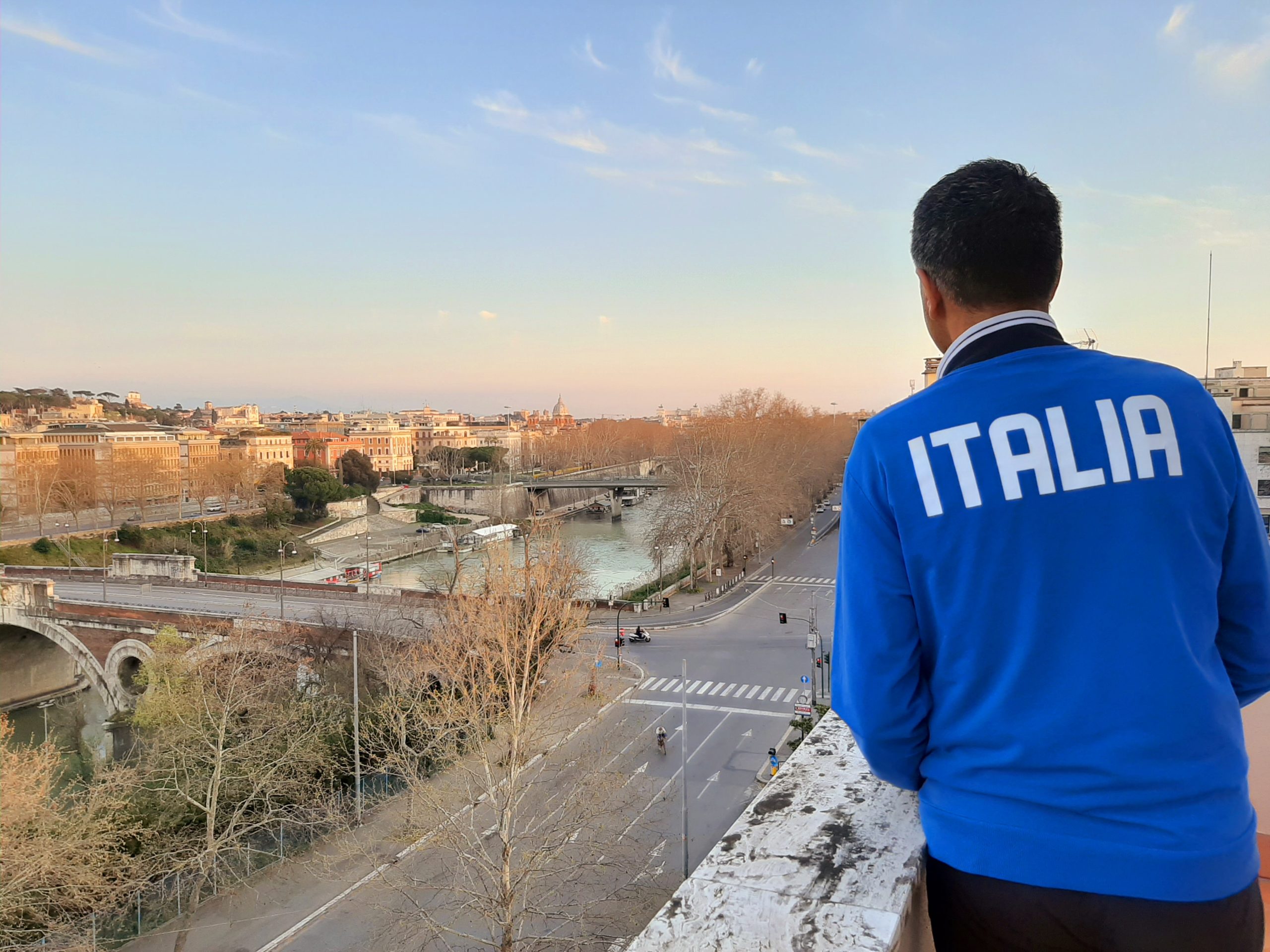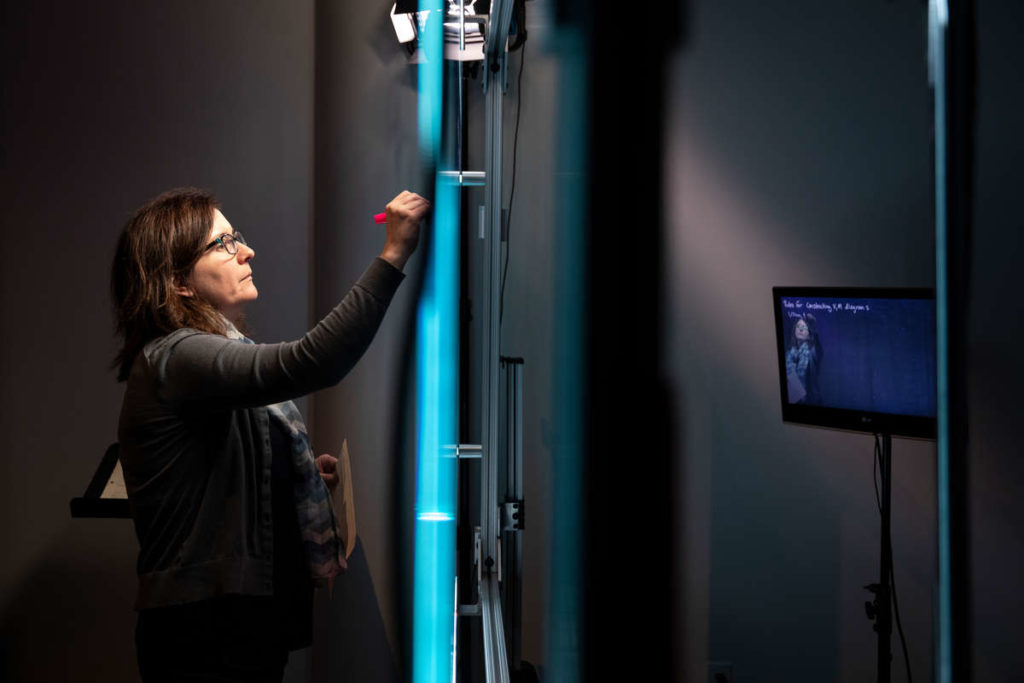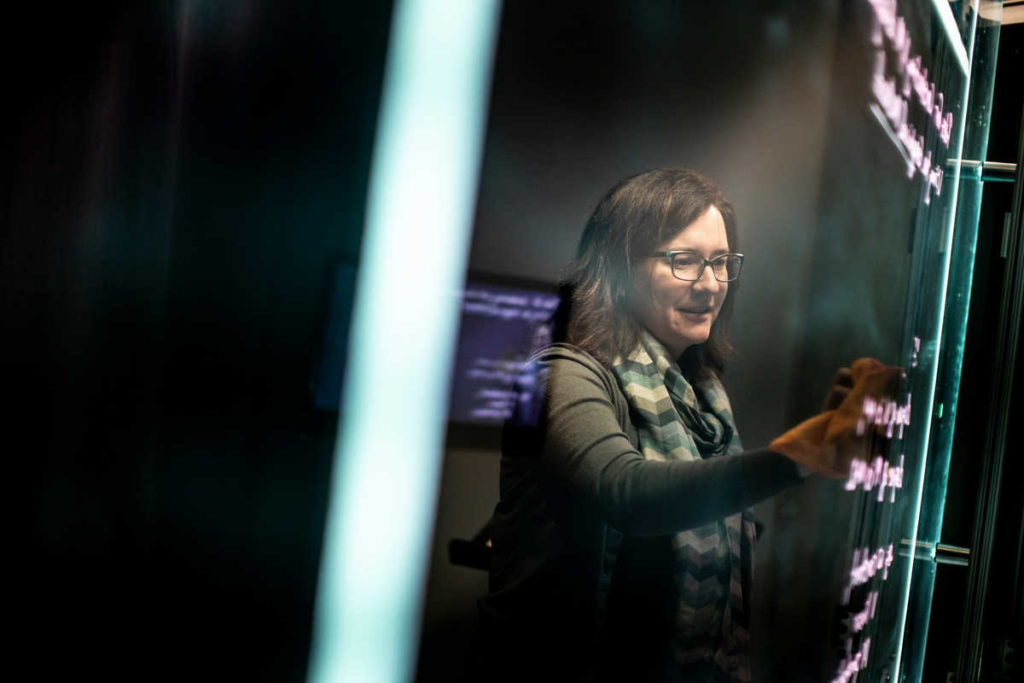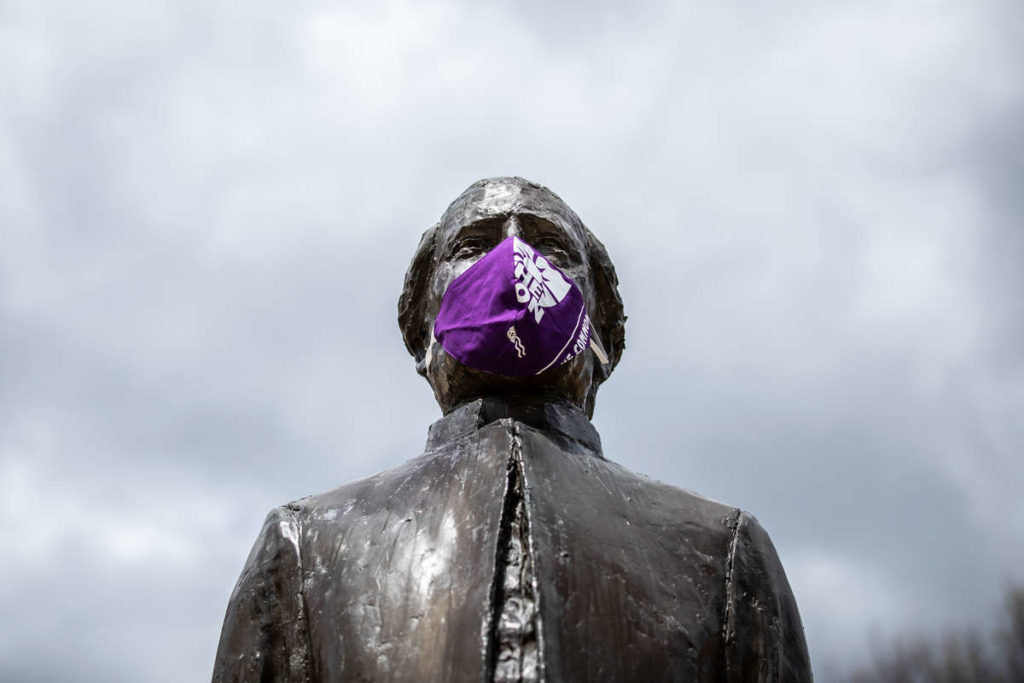This story is featured in a special edition of St. Thomas magazine on COVID-19.
Many students look forward to studying abroad at the university’s Bernardi Campus in Rome. As COVID-19 spread throughout Italy, university officials wrestled with the decision of whether to close the Bernardi Campus. St. Thomas was the first program in Rome to close its operations … and just in time.
Here’s an oral history of the decisions to close the Rome campus.
University Action and Response Team (UART)
Friday, Feb. 21 (21 total cases, one death in Italy)
U.S. Embassy Rome issues a health alert, which is received by all students.
Karen Lange, EdD, vice president, student affairs; co-chair, University Action and Response Team (UART): We [UART] were watching COVID-19 closely and saw how it was moving down the coast, even though it hadn’t hit Rome yet. When our team met, we had lots of different opinions about what we should do.
Timothy Lewis, PhD, senior international officer and associate vice provost for global learning and strategy: It’s a lot like first seeing a storm on the radar – you know it’s coming, then you start to see the dark clouds and you know that you have to deal with the rain that’s coming. … How do you do it?
Michael Naughton, PhD, director, Center for Catholic Studies: I was the faculty adviser in Rome with the students; I got over there the same day that they did [Feb.9]. Thanos Zyngas [Bernardi Campus director] and I participated in the UART meetings by phone.
You’re basically in a situation where it’s uncharted waters. Every road had not one ditch but two ditches – are we overreacting or not reacting enough?
Sunday, Feb. 23 (157 total cases, three total deaths)
Zyngas and Naughton meet with students to bring them up to date on the situation.
Naughton: The students were terribly disappointed, because they were having this powerful experience. … This community was forming, and they didn’t want to leave it. And they’re in Rome having gelato and pasta and vino; they’re walking by the Pantheon, the Trevi Fountain and the Vatican.
Monday, Feb. 24 (229 total cases, seven total deaths)
Bernardi Campus leaders tell students to avoid crowded areas. Trips to Venice and Assisi are canceled. UART discusses the possibility of bringing students home.
Heather Leclair ’21: I cannot imagine this experience with any other community. The Body of Christ is a refuge in times of trial. We had chaplains who called us to prayer, teachers who reassured us through guidance and classmates who brought us joy through laughter.
Tuesday, Feb. 25 (323 total cases, 11 total deaths)
UART outlines steps to increase food supplies to the Bernardi Campus and communicates with students about transportation, anxieties, underlying health issues, and advising on risks for personal travel.
Julia Lindell ’22: My favorite quote from Pope Benedict XVI is, “The world offers you comfort. But you were not made for comfort. You were made for greatness.” … This is a lesson that I really have come to understand during the past few weeks. … It has been a difficult time and there is much sadness about what could have been, but I am surprised every day by the hope that fills me and my friends.
Wednesday, Feb. 26 (470 total cases, 12 total deaths)
President Julie Sullivan and Executive Vice President and Provost Richard Plumb make the decision to close the Bernardi Campus and bring the students home.
Lange: I went to Julie and Richard and said, ‘Here’s what we’re thinking, here are the pros and cons. We’re split down the middle.’ … We gave them our thought process, and then Julie ultimately made the decision. … It wasn’t really that bad in Rome yet. We were the first one to make that decision, and other schools quickly followed us.
Thanos Zyngas, Bernardi Campus director: I knew this would not slow down. … I was getting information from the U.S. Embassy here in Rome of the restrictions that gradually were going into effect. … We took very aggressive measures to protect the students.
Friday, Feb. 28 (889 total cases, 21 total deaths)
Lange, Zyngas and Father Michael Becker, rector of St. John Vianney College Seminary, inform students that the remainder of the St. John Vianney-Catholic Studies Rome Semester will be canceled, and the Bernardi Campus will be closed. Students are advised to return by March 6.
Naughton: The university gave us several days to [leave the Bernardi Campus]. … We went to the Pantheon for Mass, we had Mass at the Crypt, had a last Italian dinner at a great restaurant, and just enjoyed ourselves together to not make it such a tragic ending. We made it a certain kind of celebration. We only had three weeks in Rome, but it was a glorious three weeks.
Saturday, Feb. 29 (1,128 total cases, 29 total deaths)
The Centers for Disease Control and Prevention issues a Level 3 Travel Health Notice for Italy, recommending travelers avoid all nonessential travel to Italy.
Lange: Once Rome went to a Level 3, I remember thinking, ‘Thank goodness we made the right decision.’
Wednesday, March 4 (3,089 total cases, 107 total deaths)
The last group leaves the Bernardi Campus. The Italian government orders the closure of all schools and universities nationwide.
Lange: We were so relieved when they all got back. Once the pandemic hit Rome, things moved so quickly.
Lewis: It was in the nick of time. We saw the storm coming. The question was: When do you come inside out of the rain? We called it right … then the rain started very quickly.
Friday, March 6 (4,636 total cases, 197 total deaths)
The Bernardi Campus officially closes.
Derrick Diedrich ’21: It was hard being asked to return, but Dr. Naughton and Thanos were great. They were transparent and treated us like adults, which we really appreciated. We would talk to other students we met and they seemed to be really in the dark about the whole situation or asked to leave with a notice of a day or two. … We had an awesome group, though, and kept a good attitude. Dr. Naughton was our rock through it all and a great father-like figure.
Monday, March 9 (9,172 total cases, 463 total deaths)
Italy extends lockdown nationwide.
Dan Meuwissen, director, Public Safety; UART co-chair: We can look back now and see what we did and how we stayed ahead of the national response, but at the time it was going on, there was a lot of hard work and important decisions being made.
Tuesday, March 24 (69,176 total cases, 6,820 total deaths)
Zyngas (who stayed at the Bernardi Campus, where he lives): Who would have predicted a few weeks later [after the last group left] we would reach 60,000 cases? The last three weeks have been life-changing for me.







